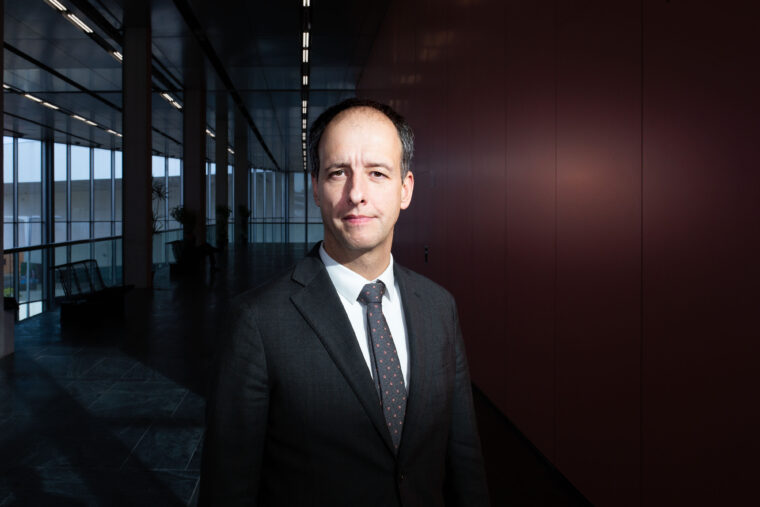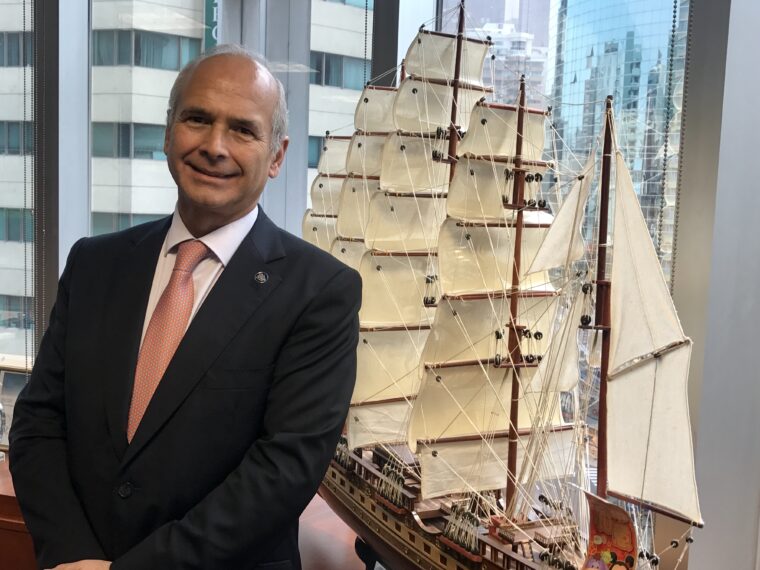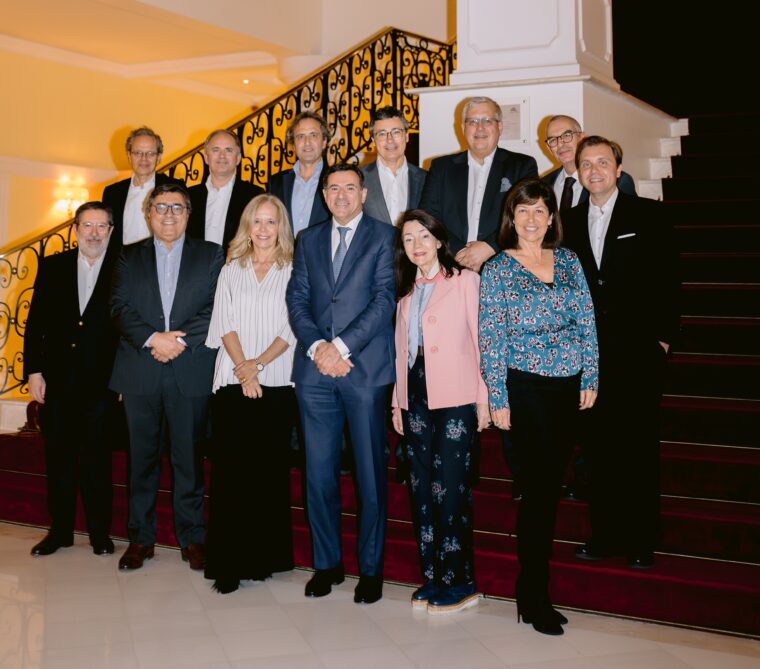In the spring of 2011, a young woman stood up during a panel discussion at a conference sponsored by the Portuguese-American Post-Graduate Society at the NYU Langone Medical Center in Manhattan.
The panelists, including elected officials and marketing experts, had been discussing how to market Portugal as a “brand.”
“I’ve been hearing people talk about the image of Portugal and what has to be done for many years,” the woman said. “And nothing ever happens. I’ve heard enough. I just started an organization that will showcase here, in New York, art from Portugal. It’s called Arte Institute.”
Since that day the organization has held more than 100 events, from short-film festivals to the “Summer Nights Series” in Union Square, to week-long celebrations of Portuguese writers, to performance events, dance shows, movies and documentary screenings.
And so, this April, an array of Portuguese and American politicians, bankers, actors, directors, artists and designers filled Father Demo Hall, in Greenwich Village, to celebrate the institute’s third anniversary. And they toasted Arte Institute’s founder and director, Ana Ventura Miranda, who stood up that day three years ago to speak her mind.
“Other countries have a public institute that does this work all over the world. Spain has Instituto Cervantes, Germany has Goethe-Institut, France the Alliance Française. Portugal never had something like that,” said Miranda. “People now understand how much needed it is.”
It all started eight years ago, when Miranda, now 36, moved to New York to study acting. As it happens with many actors, she started working in a different job. At the Sonnabend Gallery in Chelsea, she started thinking how much she would like to be in touch with her culture more often. But there wasn’t a space for contemporary Portuguese art and culture in the city. “I was talking to ambassadors, public officials and persons from the arts world about the lack of such a space for the Portuguese language that could also be a home for contemporary artists,” she remembered. “And they would always say the idea was megalomaniac, that there was no money for such a thing.”
In 2011, Miranda got an award for a short film from the Anthology Film Archives, an international center for the preservation, study, and exhibition of film and video based in New York, in the New Filmmakers category. This gave her the motivation to do more, and for others – so she decided it was time to organize a film festival. “I knew that my movie wasn’t that good, that many people in Portugal were doing much better, but they just had no chance to showcase their work,” she said.
She reached out to City Hall. The New York State Council on the Arts offered the recently renovated pavilion in Union Square as a space at which to hold the festival. The city asked if she had other events planned. Miranda quickly contacted Portuguese friends in New York to solicit ideas. At the same time, as she built the website for the festival, she decided it would be a portal with an online gallery, news and videos. “Suddenly, I wasn’t organizing a festival anymore. It was something more,” she remembered.
During the event, Miranda understood that the new institute she was forming would do more than show the creative energy emanating from the western coast of Europe. “The jury was completely surprised with the quality of the movies, which was what I expected; but some of the authors were also surprised that their work could have such a warm welcoming across the ocean,” Miranda said. “We are also sending a message to Portugal to say they’re good, to say they have a public outside the country.”
Miranda believes that outside Europe, Portugal is still closely associated with Brazil or Spain – and that can be intimidating to someone coming from a country with fewer than 10 million citizens. “We have yet to develop an identity here,” she says. “How many times have I heard that the carnival is so beautiful in my country?”
In its first months, Arte Institute sponsors were American, and funding came from places such as the New York State Council on the Arts, the New York City Department of Cultural Affairs and the Lower Manhattan Cultural Council. But Miranda discovered that she was an effective fundraiser, a characteristic rare among Portuguese people.
“We’re using a very American model in a country that is not used to it at all,” she explained. “It’s difficult to find private initiative in the fields of culture, art and science. It was hard to find sponsors in Portugal. Companies and institutions weren’t prepared.” That changed, she said, when people realized the Arte Institute was here to stay – even though it has no expensive building to house its activities, but rather is run by Miranda out of her home. Today Arte Institute gets sponsorship for its programming from several Portuguese institutions, the Portuguese-American Foundation, banks and an energy company.
Just this April, the institute screened the French-Portuguese production “The Gilded Cage,” at the Museum of Modern Art (MoMA). The director, Ruben Alves, and the lead actors, Rita Blanco and Joaquim D’Almeida, were present. D’Almeida, who has lived in the United States since 1976, appearing in movies such as “Desperado” and the TV series “24,” is a fan of the institute.
The actor believes Arte “is doing what a cultural attaché should be doing, if the country had one.” “Their tireless work, showcasing our poets, writers, painters and directors is commendable. I think most politicians could learn with Ana’s example and ask not what their country can do for them, but what they can do for their country,” D’Almeida said, invoking John F. Kennedy’s words.
Arte Institute is now expanding to Portuguese-speaking countries, such as Brazil and Angola, and the institute has sponsored occasional events in England and France. Miranda sees New York “as a window, from which you can disseminate your work to the entire world. ”In March, the institute held the second edition of “Pessoa in New York,” a series of events to discuss the work of the 20th century poet. Pessoa’s words have always been a mantra for Miranda and, in turn, for the Arte Institute. In speeches, flyers and public announcements, his words are cited: “The Man has the size of his dream.”
But on a cold night in March, at the Gershwin Hotel in NY, surrounded by Portuguese and Americans avidly listening to the words of one of the greatest literary figures of the 20th century and enjoying the music of the pianist Renato Diaz, Miranda recited some different words from the poet. “God wishes, man dreams, the work is born,” she said.
Voices of NY 29 April 2014






